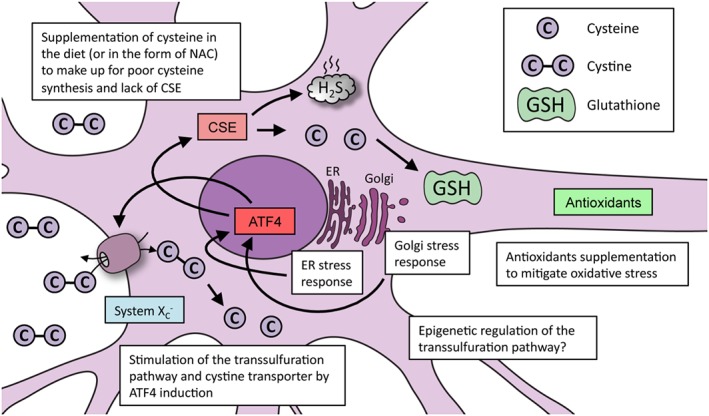Figure 4.

Strategies used to promote redox balance in cells via cysteine metabolism: Huntington's disease as an example. In conditions involving elevated oxidative stress caused by cysteine imbalance (as exemplified by Huntington's disease), several approaches can be followed to improve cell survival. Supplementation of cysteine or N‐acetyl cysteine (NAC) via the diet can reverse abnormalities in cells. Mitigating oxidative stress, which improves stress‐response pathways, can promote optimal functioning of the transsulfuration pathway. Up‐regulating the expression of CSE via the stress‐responsive transcription factor ATF4 can correct abnormalities associated with cysteine deprivation. Mild forms of ER and Golgi stress can elicit cytoprotective responses, which may provoke cellular adaptations that can help protect against future damaging insults. In addition to these strategies, altering the epigenetic state of the CSE and CBS promoters may also induce their expression.
